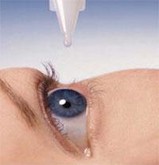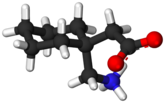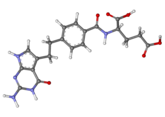Generics
Ranbaxy to expand Russian portfolio
Generics manufacturer Ranbaxy Laboratories (Ranbaxy) has been in the Russian pharmaceuticals market for 20 years and is now considering expanding its product offering in the country.
Therapeutic substitution could save Americans money
Substituting more expensive brand-name drugs with generics or therapeutic substitutes, could lead to significant savings for Medicare Part D beneficiaries, according to US researchers [1].
Mylan and Par pass FDA scrutiny on Wellbutrin generics
Mylan and Par Pharmaceutical (Par) announced on 20 and 22 August 2013, respectively, that they have passed FDA scrutiny of their generics of antidepressant Wellbutrin XL (bupropion).
Strategies used by sickness funds to increase generics prescribing in Austria
In 2010, a survey of Austrian sickness funds was undertaken to evaluate how Austrian doctors, patients and pharmacists are encouraged to enhance the rational use of medicines, and increase use of generics [1].
Allergan objects to Restasis generics being accepted without human trials
Following the publishing of draft guidance on cyclosporine by FDA, ophthalmic specialist Allergan is requesting that FDA revise its guidance on cyclosporines, arguing that generic versions of its eye drug Restasis (cyclosporine ophthalmic emulsion) should be tested in humans before approval, not just in a laboratory.
Interchangeability of gabapentin generic formulations in The Netherlands: summary of a comparative bioavailability study
Abstract
The registration of generic formulations in the EU is governed by regulatory authorities in the respective European countries. Before a generic drug can be registered, bioequivalence to the branded formulation has to be demonstrated, i.e. 90% confidence intervals of area under the curve (AUC), and Cmax should fall within the 80–125% acceptance range. Comparative studies with other generics are not required. In order to establish whether a generic medicine is interchangeable with other generic formulations under current regulations, the Dutch regulatory authority conducted a single- dose, four-way crossover comparative bioavailability study with four gabapentin formulations, i.e. the branded formulation and three generic drugs, as test medication. The results showed that all four formulations were bioequivalent to each other, and that no interchangeability issues would result from switching.
FDA increases generic drug user fees in 2014
FDA has increased the amount that generics manufacturers will have to pay to register their finished drug formulation (FDF) facilities by more than US$40,000 for 2014 compared to 2013.
Eli Lilly attempts to further delay Alimta generics
Pharma giant Eli Lilly was scheduled to be in court on 19 August 2013 to defend another of its patents on its blockbuster lung cancer drug Alimta (pemetrexed).
Pfizer’s US$2.15 billion settlement with Teva and Sun Pharma
Pfizer announced in June a US$2.15 billion settlement with Teva and Sun Pharmaceutical Industries (Sun Pharma) for patent-infringement damages resulting from unlawful launches of generic Protonix (pantoprazole) in the US.
How regional sickness funds in Austria encourage more rational prescribing
In Austria, as in other EU countries, rational use of medicines is high on the healthcare agenda. According to WHO, use of generic medicines help reduce costs incurred by public payers and is a way of supporting rational use of medicines.













